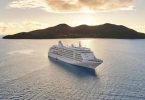This article discusses travel accidents abroad and the selection of a U.S. or Canadian court in which the injured traveler may seek appropriate compensation. This analysis assumes that the selected U.S. or Canadian court has jurisdiction over the foreign hotel and/or local ground provider [see our earlier ETN articles Jurisdiction and the Internet https://www.eturbonews.com(1/14/2014) and Personal Jurisdiction over Foreign Travel Suppliers (2/26/2014); see also these Canadian cases Club Resorts Ltd. v. Van Breda 2012 SCC 17 (2012)(drowning in Cuba; jurisdiction over Cayman Island corporation doing business in Ontario); Haufler v. Hotel Riu Palace Cabo Sab Lucas, 2013 ONSC 6044 (2013) (accident riding ATV; no jurisdiction over Mexican hotel where ATV tour sold); Colavechia v. Berkeley Hotel, Ltd., 2012 ONSC 4747 [2012] (slip and fall in hotel bathtub; jurisdiction over English hotel)]. Even though subject to personal jurisdiction the foreign travel supplier may seek to dismiss the case on the ground that the U.S. or Canadian forum selected is inconvenient. This concept is known as the doctrine of forum non conveniens and is adhered to by U.S. and Canadian courts. https://www.eturbonews.com
Where To Sue
A common litigation strategy for the injured traveler, whether U.S. or Canadian citizen or not, is to sue in the U.S. or Canada against a solvent defendant subject to personal jurisdiction and applying U.S. or Canadian common law or statutory law. The perceived recovery of relatively generous damages in U.S. and Canadian courts may attract foreign citizens as well as U.S. or Canadian citizens seeking appropriate compensation for their injuries. For example, a class of nearly 1,000 Italian citizens affected by the sinking of the Costa Concordia filed suit in U.S. federal court in Miami only to have their action dismissed because of the doctrine of forum non conveniens [see Giglio Sub S.N.C. v. Carnival Corp. (2012)].
Wrongful Death Claims
Traveling abroad can be a wonderful experience until you have an accident. This was, especially, true for tourists subject to wrongful death [see e.g., Abramson v. The Ritz-Carlton Hotel Company, LLC (hotel guest in Jamaica dies of heart attack); Gubanova v. Miami Beach Owner, LLC (Russian tourist murdered in Miami hotel); Club Resorts Ltd. V. Van Breda 2012 SCC 17 (2012) (catastrophic injury on beach and drowning while scuba diving in Cuba; jurisdiction over Cayman Island corporation doing business in Ontario); Siegel v. Global Hyatt (tourist at Jordan hotel killed by suicide bomber); Guidi v. Inter-Continental Hotels Corp. (guests murdered in hotel restaurant by terrorists in Egypt); Sengupta, “At Least 100 Dead in India Terror Attacks” (NY Times 11/27/2008); Haubner v. Abercrombie & Kent International, Inc. (tourists abducted from safari tents and murdered by rebels ); Shea v. Global Travel Marketing, Inc. (child mauled and killed by hyenas in Botswana); Van Hoy v. Sandals Resorts International (guest drowns in hot tub in the Bahamas); DiFederico v. Marriott International (tourist killed in terrorist attack in Pakistan); Perez-Lang v. Corporacion De Hoteles, SA (hotel guest dies operating golf cart in Dominican Republic); Gianocotas v. RIU Hotels, S.A. (hotel guest allegedly dies because of medical malpractice by hotel doctor and at local infirmary in Dominican Republic); Lhotka v. Geographic Expeditions, Inc. (climber dies of high altitude sickness on Mount Kilamanjaro in Tanzania) and Philippe v. Lloyd’s Aero Boliviano (tourist takes plane to La Paz traveling from sea level to an altitude of 13,313 feet within 40 minutes during which he suffers cerebral injuries due to hypoxia)].
Assaults, Rapes & Robberies
Tourists may be subjected to assaults, rapes and robberies, especially in the Caribbean [see Myers, Caribe Noire, Travel Weekly, January 11, 2010, p. 18 (“Crime in the Caribbean is the elephant in the room that no one wants to talk about, but several headline-grabbing events in 2009 propelled the issue onto newspapers’ front pages, social media outlets and websites”][see e.g., Woods-Leber v. Hyatt Hotels of Puerto Rico (mongoose attacks guest sunbathing at hotel pool); Schreiber v. Camm (guests at Jamaican vacation estate shot by security guard); Wilson v. American Trans Air, Inc. (guest assaulted at hotel in Cayman Islands); Cortez v. Palace Resorts (sexual assault by male masseur in hotel in Mexico); Blankley v. Marriott Corp. (inappropriate touching during massage in Puerto Rico)]; O’Keefe v. Inca Floats, Inc. (sexual assault during cruise to Galapagos Islands )]; Doe v. Sun International Hotels, Ltd. (guest raped at resort in the Bahamas ); Girden v. Sandals International (tourist sexually assaulted on small boat in Jamaica); Catalano v. NWA, Inc. (tourist raped during sailing excursion on a two-person sunfish sailboat in Jamaica); Creteau v. Liberty Travel, Inc. (tourist raped and robbed in Jamaica); Flanagan v. Wyndham International, Inc. (children molested in hotel day care facility in St. Thomas ) and Dow v. Abercrombie & Kent (tourists on safari assaulted and robbed by bandits while camping in the Oloolo Escarpment in the Masai Mara reserve)].
Water Sports Accidents
Tourists may be subject to drownings and injuries while participating in various water sport activities [see Ogawa v. U.S. Explore & Study (tourist rendered quadriplegic after diving into water hole in Guam); Calvo v. Sol Melia, S.A. (tourist struck by motorboat while swimming off the beach in Dominican Republic); Club Resorts Ltd. V. Van Breda 2012 SCC 17 (2012) (catastrophic injury on beach and drowning while scuba diving in Cuba); Mayer v. Cornell University (tourist on bird-watching tour of Costa Rica drowns while snorkeling off the Il de Cano); Lehman v. Humphrey Cayman Ltd (tourist drowns in ocean off of Cayman Islands); Stotesbury v. Pirate Duck Adventure (tourist injured during Duckaneer adventure in St. Thomas); DeSirey v. Unique Vacations (dune buggy accident in St. Lucia); Yager v. Starwood Hotels & Resorts (tourist sitting in lounge chair near pool crushed when “several hundred pound inflatable waterslide…blew over on top of her”); Jerome v. Water Sports Adventure Rentals (jet ski accident in St. Thomas); Rygg v. County of Maui (hotel guest is paralyzed and rendered a quadriplegic in surfing accident off of Kamaoele II Beach ); Tancredi v. Dive Makai Charters( scuba diver drowns diving in the Deep Reef )]; Sankaran v. Club Mediterranee, S.A. (guest on snorkeling excursion abandoned and forced to return to Club Med facility by swimming and walking on sharp coral reef ); Gardemal v. Westin Hotel Company (tourist drowns snorkeling off of Lovers’ Beach in Mexico) and Irwin v. World Wildlife Fund, Inc. (boating accident in Gamba lagoon in Gambia)].
Slip, Trips & Falls
And, of course, let’s not forget the slip, trip and fall [see e.g., Black v. The Ritz-Carlton Hotel Company (slip and fall in Dubai hotel); Colavechia v. Berkeley Hotel, Ltd., 2012 ONSC 4747 [2012] (slip and fall in bathtub in English hotel); Gilbertson v. Hilton Worldwide (slip and fall in Costa Rica); Tross v. Ritz Carlton Hotel (slip and fall in bathtub in St. Thomas); Clarke v. Marriott International (slip and fall in bathtub in St. Kitts); Hofer v. The Gap, Inc. (guest falls into turtle pond at hotel after flip flop breaks in Jamaica) and Leinhart v. Caribbean Hospitality Services, Inc. (hotel guest lying on beach in lounge chair and struck by truckhttp://www.nycourts.gov/courts/9jd/taxcertatd.shtml)].
Choosing A Friendly Forum
While the injured tourist may have a choice of litigating his or her claim in the foreign country in which the accident occurred this may not be the wisest course of action. The law may be less sympathetic to the injured traveler in, among other places, Egypt [see MacLachlin v. Marriott Corporation (tourist thrown from angry camel in Egypt; “an Egyptian forum which is based partially on Koranic law would be unduly harsh to plaintiff “); France [see In Re Air Crash Off Long Island, New York (air crash; France does not allow punitive damages); Dominican Republic [see Calvo v. Sol Melia, S.A. (tourist struck by motor boat while swimming; Dominican Republic does not recognize product liability claims); Turkey [see Mercier v. Sheraton International, Inc. (contract dispute; Turkey may not recognize claims for breach of contract or tortious interference with contract); Nowack v. Tak How Inv. Ltd. (drowning accident; law uncertain in Hong Kong ); Malaysia [see Simcox v. McDermott International (slip and fall on barge; Malaysia has similar substantiative law to U.S.); Cayman Islands [see Lehman v. Humphrey Cayman Ltd. (recovery for wrongful death in Cayman Island may not exceed $5000); China [see Barkanic v. General Administration of Civil Aviation (air crash; maximum recoverable damages limited to $20,000); Mexico [see Wendelken v. Superior Court (slip and fall; Mexico limits lost wage damages to 25 pesos per day)].
Foreign Procedural Law
The applicable foreign legal system may discourage litigation as we know it in the U.S. by, among other things, barring contingency fee arrangements with attorneys and jury trials in, among other places, Bermuda [see Bruemmer v. Marriott Corp. (hotel guest playing golf falls off cliff adjacent to tee area for 18th hole and subsequently dies from his injuries; no contingent fees in Bermuda); Bahamas [see Doe v. Sun International Hotels, Ltd. (18 year old female guest raped at hotel; no jury trials or contingency fees in Bahamas ); Cuba [see Club Resorts Ltd. V. Van Breda 2012 SCC 17 (2012)(“A trial held in Cuba would present serious challenges to the parties. There may be problems with witnesses, concerns about the application of local procedures, and expenses in litigating there…the burden on the plaintiffs clearly would be far heavier if they were required to bring their action in Cuba”)]; Cayman Islands [see Wilson v. Humphreys Cayman Ltd (rape at hotel; no contingency fees or jury trials in Cayman Islands ); Lehman v. Humphrey Cayman Ltd. ( no contingency fees or jury trials in Cayman Islands )]; Jamaica [see Reid-Walen v. Hansen ( motorboat accident; no contingency fees or jury trials in Jamaica ); Lugones v. Sandals Resorts, Inc. (no contingency fees or jury trials in Jamaica) and Israel [see Gyenes v. Zionist Organization of America (student drowned in Jordan River; no right to jury trial in Israel); ].
Is The Forum Selected Convenient?
Travelers injured abroad may commence a lawsuit in a U.S. court against a cruise line, foreign hotel, tour bus company or various other ground operators. In response the defendants may seek to dismiss the lawsuit because the U.S. forum selected is not convenient [forum non conveniens] or a clause in the cruise passenger ticket, hotel registration form or tour participant contract states that all lawsuits must be brought in a specific forum [forum selection clause].
Plaintiff’s Choice Is Important
Although it is not dispositive, the forum selected by the plaintiff, particularly if he or she resides in that forum, will be given serious consideration prior to dismissing a lawsuit on the grounds of forum non conveniens [see Guidi v. Inter- Continental Hotels Corp. (murder in Egyptian hotel; “the choice of an American court over a foreign court should be given the heightened deference”)].
Advertising In The Forum
If a defendant advertises and solicits business in the forum it should expect to be available for lawsuits brought by injured residents. In Reid-Walen v. Hansen, a case involving a motorboat accident in the Bahamas, the Court found that because of a Bahamian hotel’s solicitation of business in the U.S. it “should not be (totally) surprised…that they may be sued in the courts of the U.S.”. And in Nowak v. Tak How Inv. Ltd., a case involving a drowning in a Hong Kong hotel pool, the Court held that a cost of doing business is being available to respond to lawsuits in the U.S. The Nowak Court also declared that Massachusetts, where the lawsuit was brought, had a strong interest in protecting its citizens from solicitations for unsafe services.
Availability Of Alternative Forum
Generally, the Court will not dismiss a lawsuit unless there is an alternative forum available to hear plaintiff’s claim. The Courts differ widely on just how different the alternative forum can be to still be “available”. Such factors as whether the foreign forum recognizes U.S. legal theories [see Mercier v. Sheraton International, Inc. (failure to show that Turkish law expressly recognizes claims for breach of contract and tortious interference with contract)], allows contingency fee arrangements with attorneys [see Lugones v. Sandals Resorts, Inc. (no contingency fees in Jamaica )], provides for jury trials [see Flynn v. General Motors, Inc. (no jury trials in Trinidad and Tobago)] and limits recoverable damages [see Abouchalache v. Hilton International Co. (limit on punitive damages not dispositive); Sullivan v. Starwood Hotels and Resorts Worldwide (slip and fall in Chinese hotel parking garage and underwent surgery in Beijing United Family Hospital; forum non conveniens motion denied; China not an adequate alternative forum); Club Resorts Ltd. V. Van Breda 2012 SCC 17 (2012)(“A trial held in Cuba would present serious challenges to the parties. There may be problems with witnesses, concerns about the application of local procedures, and expenses in litigating there”)].
Plaintiff’s Emotional Burden
In Guidi v. Inter-Continental Hotels Corp. tourists were shot and murdered at a hotel restaurant in Egypt. In denying a motion to dismiss the lawsuit the Court noted the emotional burden of having family members travel to Egypt. “Plaintiffs are atypical in that they are either the widows or the victim of a murderous act directed specially against foreigners. Understandably, they are strongly averse to litigating in a country where foreigners have been the target of hostile attacks and have concerns for their own safety if required to travel there”.
Location Of Witnesses And Evidence
Proving or defending an accident case may require the production of witnesses and documentary and physical evidence which is located in the distant forum where the accident occurred. In arguing for dismissal the defendant will show the Court a list of essential witnesses which are beyond the Court’s jurisdiction and, hence, unavailable for trial [see Dunham v. Hotelera Canco, S.A. (snorkeling accident in Mexico; witnesses not subject to subpoena power of U.S. courts); Carney v. Singapore Airlines (tour accident in Indonesia; defendant would not be able to subpoena witnesses if action brought in U.S.); Club Resorts Ltd. V. Van Breda 2012 SCC 17 (2012)(“A trial held in Cuba would present serious challenges to the parties. There may be problems with witnesses”)]. The defendant may also assert that the jury must have a view of the accident scene [see Rudisill v. Sheraton Copenhagen Corp. (guest falls in hotel bathtub; view of site important consideration)]. The Court must examine the actual necessity of each listed witness [see Calvo v. Sol Melia, S.A. (Spanish tourist struck by motorboat while swimming of the beach in Dominican Republic; all 41 witnesses to the accident lived in Dominican Republic and spoke only Spanish; motion to dismiss granted); Abouchalache v. Hilton International Co. (bomb explosion at London hotel; necessary witnesses and view of accident scene in London; motion to dismiss granted)] and decide whether there are alternative forms of evidence which will make the witness’s presence unnecessary such as dispositions, video presentations and sworn statements [see Bruemmer v. Marriott Corp. (admissions, video tapes, models, photographs acceptable alternative evidence)].
Conclusion
Choosing the appropriate forum in which to litigate the traveler’s claim requires considerable thought and involves consideration of many factors.
The author, Justice Dickerson, has been writing about Travel Law for 38 years including his annually-updated law books, Travel Law, Law Journal Press (2014), and Litigating International Torts in U.S. Courts, Thomson Reuters WestLaw (2014), and over 300 legal articles many of which are available at www.nycourts.gov/courts/9jd/taxcertatd.shtml .
This article may not be reproduced without the permission of Thomas A. Dickerson.






















